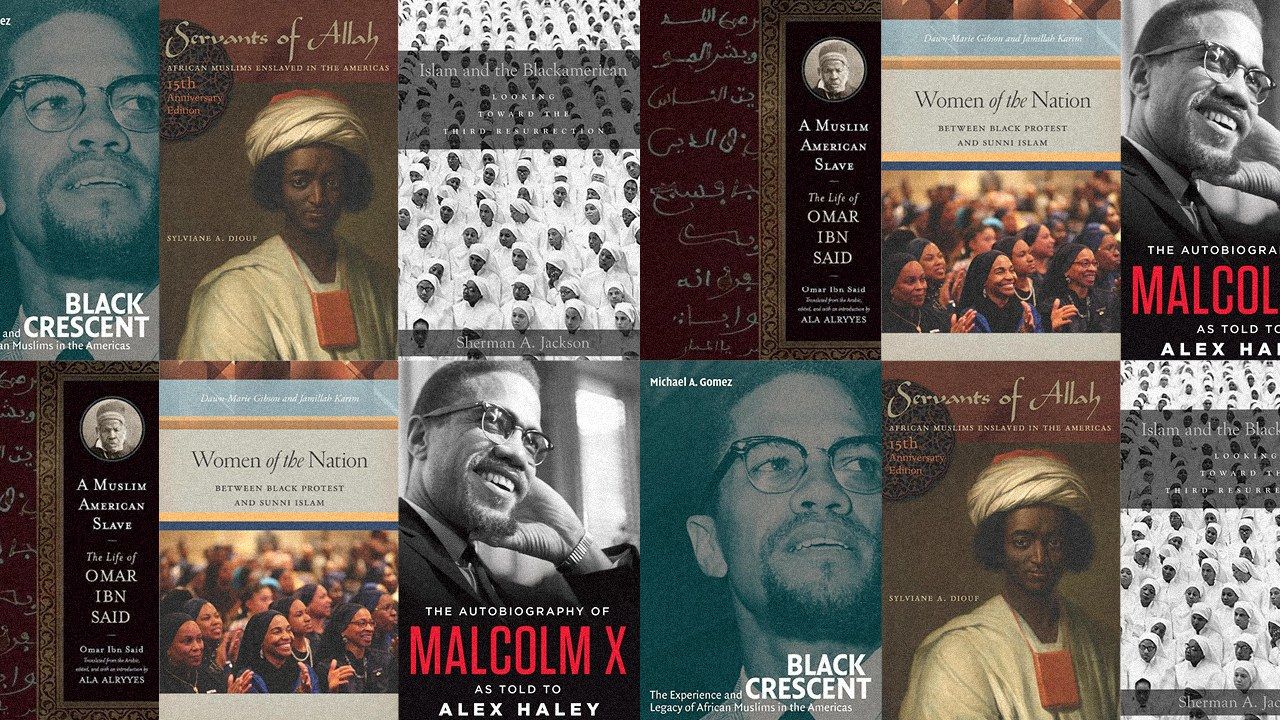
According to a PEW 2017 study, black people (not including those of Hispanic descent or mixed race) make up 20% of the country’s overall Muslim population. Teen Vogue says that “understanding Black Muslims in the U.S. is essential not only to understanding America’s Islamophobia but to understanding pop culture, racial capitalism, surveillance, and more. Black Muslims have existed in the U.S. for centuries and folded themselves into every aspect of resistance within it.”
With this in mind, Teen Vogue has put together their “essential Black Muslim reading list”:
1. Servants of Allah: African Muslims Enslaved in the Americas by Sylviane A. Diouf
Award-winning historian Sylviane A. Diouf’s groundbreaking book, originally published in 1998, documents the efforts of enslaved African Muslims throughout the Americas to retain their Islamic faith.
2) Black Crescent: The Experience and Legacy of African Muslims in the Americas by Michael A. Gomez
Gomez’s 2005 book starts in Latin America during the 15th century and the second part looks into the resurrection of Islam in the United States with a focus on religious leaders and activists such as Noble Drew Ali, Elijah Muhammad, and Malcolm X.
3) “Du’as of the Enslaved: The Malê Slave Rebellion in Bahía, Brazil” by Margarita Rosa
Margarita Rosa’s article for the Yaqeen Institute offers a detailed retelling of one of the best-recorded rebellions by enslaved people in the Americas. Rosa guides readers through an exploration of Bahían Muslim intellectual society and the role it played within the eventual Malê rebellion.
4) A Muslim American Slave: The Life of Omar Ibn Said by Omar ibn Said and Ala Alryyes
Omar Ibn Said was born in the late 18th century to a wealthy family in West Africa and later enslaved and brought to the United States. The book’s description notes that he became known by “a prominent North Carolina family after filling the ‘walls of his room with piteous petitions to be released, all written in the Arabic language.’” He wrote the only surviving narrative of an enslaved person written in Arabic text.
5) African American Islam by Aminah Beverly McCloud
In her book, McCloud introduces readers to different Muslim groups and focuses on two differing Islamic views of community: asabiyah, solidarity due to kinship relationships or nation-building involving separatism, and ummah, the unifying relationships of the world community of Islam.



